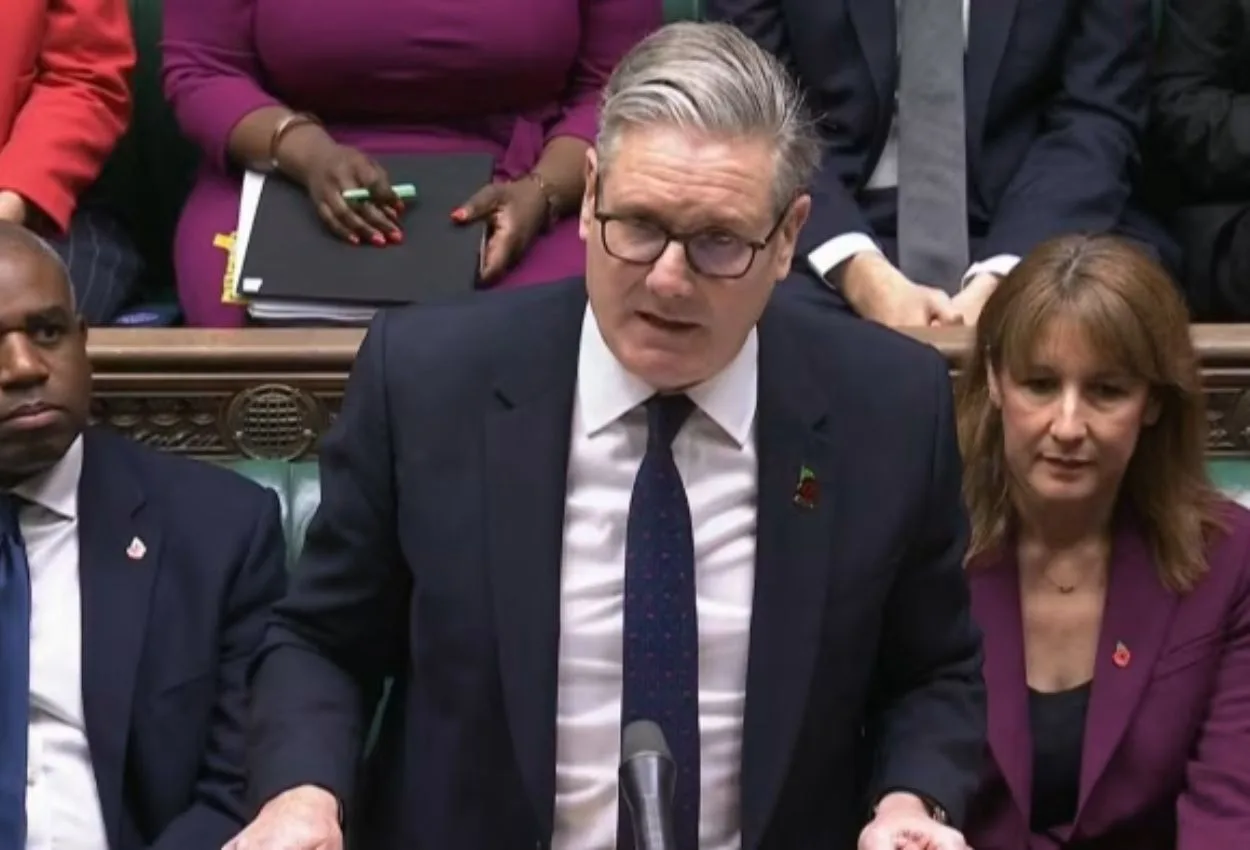UK Prime Minister Sir Keir Starmer has stopped short of reconfirming his party’s election pledges on taxation ahead of the forthcoming Budget.
During Prime Minister’s Questions on Wednesday, the Labour leader avoided restating promises not to increase income tax rates, VAT or National Insurance.
Kemi Badenoch, leader of the Conservative party, claimed this signals incoming tax increases, stating that Labour was “too weak” to manage spending through cuts instead, according to a report by the BBC.
Starmer declines to rule out income tax rise at November budget 2025
The development follows mounting rumours that Rachel Reeves, the Chancellor, may abandon Labour’s manifesto guarantees as she works to secure billions in revenue to address a fiscal shortfall.
The Chancellor is anticipated to announce tax increases at the 26 November Budget, following revised forecasts and policy reversals on welfare that have complicated efforts to meet fiscal targets.
Just four months ago in July, when Badenoch posed the question about standing by manifesto tax promises at PMQs, Sir Keir had responded with a straightforward “yes”.
At the conclusion of last month, government ministers were still maintaining that “the manifesto stands today”.
However, when presented with the identical question this week, the Prime Minister would only state that the government would “lay out our plans” at the forthcoming Budget.
Badenoch referenced Sir Keir’s earlier response, noting he had taken his seat with a “smug grin on his face”, before asking: “What’s changed in the past four months?”
The Prime Minister’s spokeswoman, when questioned by journalists following PMQs, similarly refused to reiterate the tax pledge, explaining she could not “pre-empt” the Budget.
During the 2024 general election campaign, Labour’s manifesto included explicit commitments against raising the basic, higher, or additional rates of income tax, and National Insurance. This led to controversy last autumn following the announcement of increased employer National Insurance contributions.
The manifesto also contained a commitment not to raise VAT, though it did not clarify whether this covered the rate itself or the range of goods and services subject to the tax.
Reeves has left open the possibility of extending the freeze on income tax thresholds past 2028, a measure implemented by the previous administration. This would result in wage increases pushing more workers into higher tax brackets through fiscal drag.
The manifesto commitments on the Treasury’s largest revenue sources have significantly constrained the Chancellor’s options for the 26 November Budget.
Within Labour, some figures are privately encouraging Reeves to consider raising income tax now.
Their reasoning includes the distance from the next general election, the substantial revenue potential, and the advantage that broad-based income tax rises would not generate concentrated opposition from specific interest groups, unlike measures such as last year’s inheritance tax changes affecting agricultural land.
Other party members view this possibility with concern, given it would represent a significant breach of pre-election promises that ministers have consistently repeated.
Additional concerns centre on potential negative impacts on the economy during a period of weak growth.
At her first Budget last November, Reeves implemented £40bn in annual tax increases, including higher employer National Insurance contributions, while stating such measures would not need repeating in future years.
Chancellor may break tax promises to plug £20bn budget shortfall
The Chancellor has recently acknowledged she is examining further tax rises to strengthen the UK‘s fiscal position.
Sources indicate the Office for Budget Responsibility (OBR) will lower its UK productivity forecasts, creating a £20bn shortfall in the government’s ability to meet its fiscal rules.
Sir Keir attributed the revised forecasts to the “true extent of the damage” inflicted on the economy by Conservative governance, referencing “austerity”, Brexit and Liz Truss’s mini-Budget from September 2022.
Badenoch dismissed this explanation, accusing the Prime Minister of being more willing to “dip into people’s pockets” than challenge Labour MPs over welfare spending reductions.
“He is raising taxes because he is too weak to control spending. He’s blaming us. He’s blaming the OBR (Office for Budget Responsibility),” she added.
“Last week, they were blaming Brexit. Isn’t the truth that with this prime minister, it’s always someone else’s fault?”



